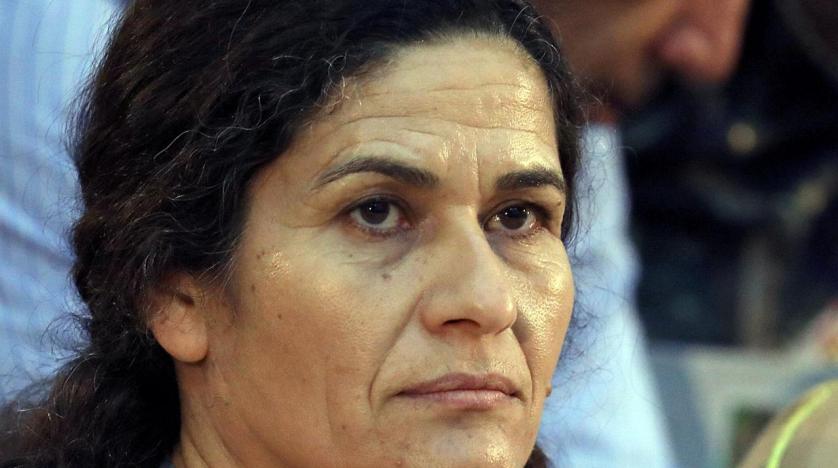In December last year, following the announcement by US President Donald Trump to withdraw his troops from Syria, Kurdish leader Elham Ahmad traveled to Moscow to mediate with the Syrian regime to resume talks. She also handed over to Russian foreign officials a roadmap for a solution.
Ahmad, who hails from the city of Afrin, is the executive head of the Syrian Democratic Council – the political wing of the Syrian Democratic Forces (SDF) – which controls about a third of Syrian territory that is rich in oil and gas fields, with the support of the US-led international coalition.
She led direct negotiations with senior representatives of the regime, and held an official meeting in July 2018 with Major General Ali Mamlouk, head of Syria’s National Security Office.
In an interview with Asharq Al-Awsat, Ahmad said: “Our visit to Moscow was aimed at conveying a message to the Russians and the Syrian regime that we believe in a peaceful political solution. We have always sought and are still searching for a solution in this way. We hope that our visit will not be misunderstood. We have provided them with a road map and stressed that we are ready for dialogue and believe in intra-Syrian dialogue.”
The Kurdish leader emphasized that her party was demanding a “decentralized political pluralistic system that preserves the dignity of the Syrian citizens and ends the decades of tyranny, making room for political life and the role of civil society and human rights groups, in addition to reviving the economic situation and distributing the country’s wealth fairly and equally to the regions and governorates.”
“If we reach an agreement that guarantees the rights of the components and peoples of northern and eastern Syria, and the constitutional recognition of self-administration, the SDF will be integrated into the new Syrian army,” she said, adding that the forces would participate in military operations in the fight against terrorist and extremist organizations and border protection.
Commenting on recent statements by Syrian Deputy Foreign Minister Faisal al-Mekdad about dialogue with Kurdish groups, she noted: “His remarks were positive in terms of accepting dialogue, but limiting the dialogue to the Kurdish issue remains incomplete, because our project is Syrian and includes all of the country’s components.”
She also called on the regime to put statements on readiness for dialogue into action.
Asked whether she trusted the Russian side in assuming such a mediation role, Ahmad underlined that the issue was not about trust and that countries involved in Syrian affairs had their own interests, “sometimes at the expense of the security, stability and interest of the people.”
“But Russia has an important and pivotal role in Syria,” she stressed. “There must be cooperation in the liberation of the areas occupied by Turkey and the preservation of the unity of Syrian territory… Therefore, it is incumbent upon it to encourage the regime to engage in a serious negotiating process.”
Asked about her meetings in Paris with French senior officials last year, Ahmad replied that they were more aware of the persisting threats of ISIS, despite the terrorist organization’s great losses on the ground, in addition to the dangers that would threaten the eastern Euphrates region if Turkey carried out a military attack against it.
“The French promised that they would discuss with the United States its decision to withdraw from Syria, would press Turkey to stop its campaign and threats and pledged to maintain humanitarian support,” she revealed.
Responsibility for the information and views set out in this article lies entirely with the author.


